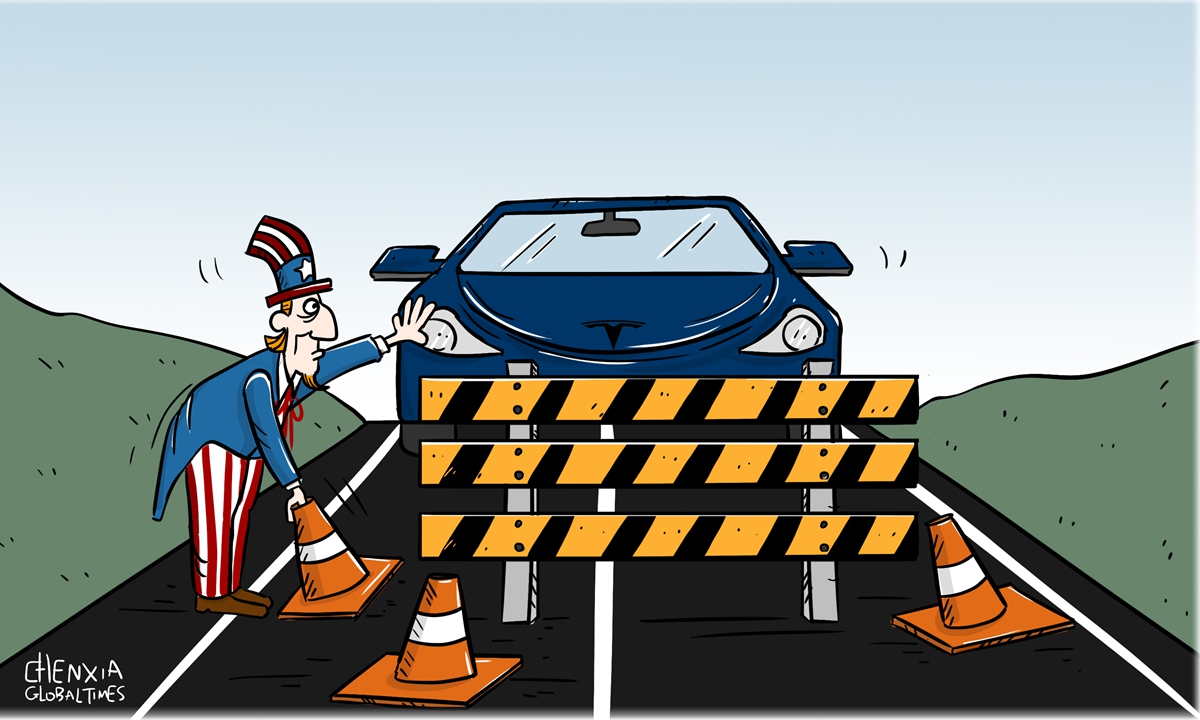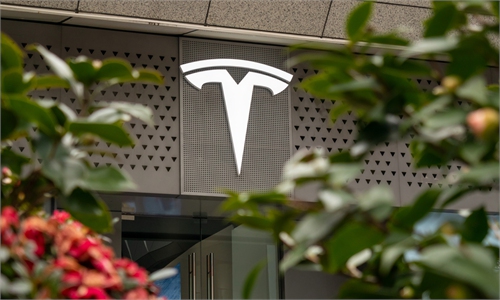
Illustration: Chen Xia/GT
Tesla CEO and SpaceX founder Elon Musk has been once again pushed to the center of discussion in the US as some lawmakers on Capitol Hill question his business ties with China amid US' intensifying containment of China's economic and technology development.Washington's rising concerns over the billionaire entrepreneur center on the "potential security risks" from Tesla and SpaceX' business connection with China, The Wall Street Journal reported. Some US lawmakers are pushing for confidential briefings to determine whether SpaceX has any links to Chinese government or investors with Chinese connection.
It is reported that Tesla's operations in China, which include a Shanghai Gigafactory and loans from Chinese banks, are also under scrutiny. US Commerce Secretary Gina Raimondo warns US companies should be "extremely wary" in dealing with China.
This is not the first time US government officials and politicians have tried to pressure Musk over China. Tesla was threatened by the Biden administration in January for opening a new showroom in Northwest China's Xinjiang Uygur Autonomous Region. White House Press Secretary Jen Psaki at the time warned that Tesla faces "serious legal, reputational, and customer risk."
It is no secret that the so-called national security risk is just an excuse made up by US politicians to hold back China's economic development and technological progress.
The motive behind US politicians' latest request to push forward the review of SpaceX and Chinese investment is no more than fabricating new charges to disrupt China's progress on space technology.
But how can the US expect to disrupt China's progress in space technology by probing an American company's investment? Although the US has long extended its geopolitical hostility to China on space, it has not prevented China from achieving breakthroughs again and again. Even if they can find out small proportion of investment with Chinese links in SpaceX, it's ridiculous for them to believe cutting such ties will hinder China's progress.
Musk's electric vehicle (EV) brand Tesla's success in the Chinese market is a typical microcosm of the mutual beneficial business cooperation between the US and China, despite the decoupling attempts pushed by some US politicians. According to Reuters calculations, half of the 936,000 EVs Tesla delivered last year were manufactured in its Shanghai Gigafactory. The strong capacity of the facility has provided strong supports for the company share price against shorting in the US market, helping it become the sixth company in US history to cross $1 trillion valuation.
Tesla opening of a store in Xinjiang not only smashed the US falsehood about "forced labor" in the region, but also reflects the efforts of China to expand opening-up to create favorable conditions for attracting foreign investment. The growth of a multinational company like Tesla highly depends on China's unique advantage of an entire industrial chain and China's vast market. This economic fact speaks of the indispensability of China for US companies even if anti-China politicians in the US are reluctant to admit.
Washington is fighting against the laws of the economy, and they've gone too far in what is entirely a waste of time. They can't even accept that an American entrepreneur can make some realistic evaluations of China's business environment. Speaking of Musk's positive comments toward China, former Republican Senator Cory Gardner of Colorado said Musk's words "tone deaf to the legitimate national security concerns that members of Congress have." It's hard to imagine how some positive comments on China from Musk can undermine US' national security.
Driven by domestic political needs, US politicians use baseless accusations to force US companies to cut off links with China, which is blatant coercion. Instead of preventing China from making economic and technological progress, such political interference against free market principles will only harm the interests of American companies and put the US at a competitive disadvantage.
The author is a reporter with the Global Times. bizopinion@globaltimes.com.cn



